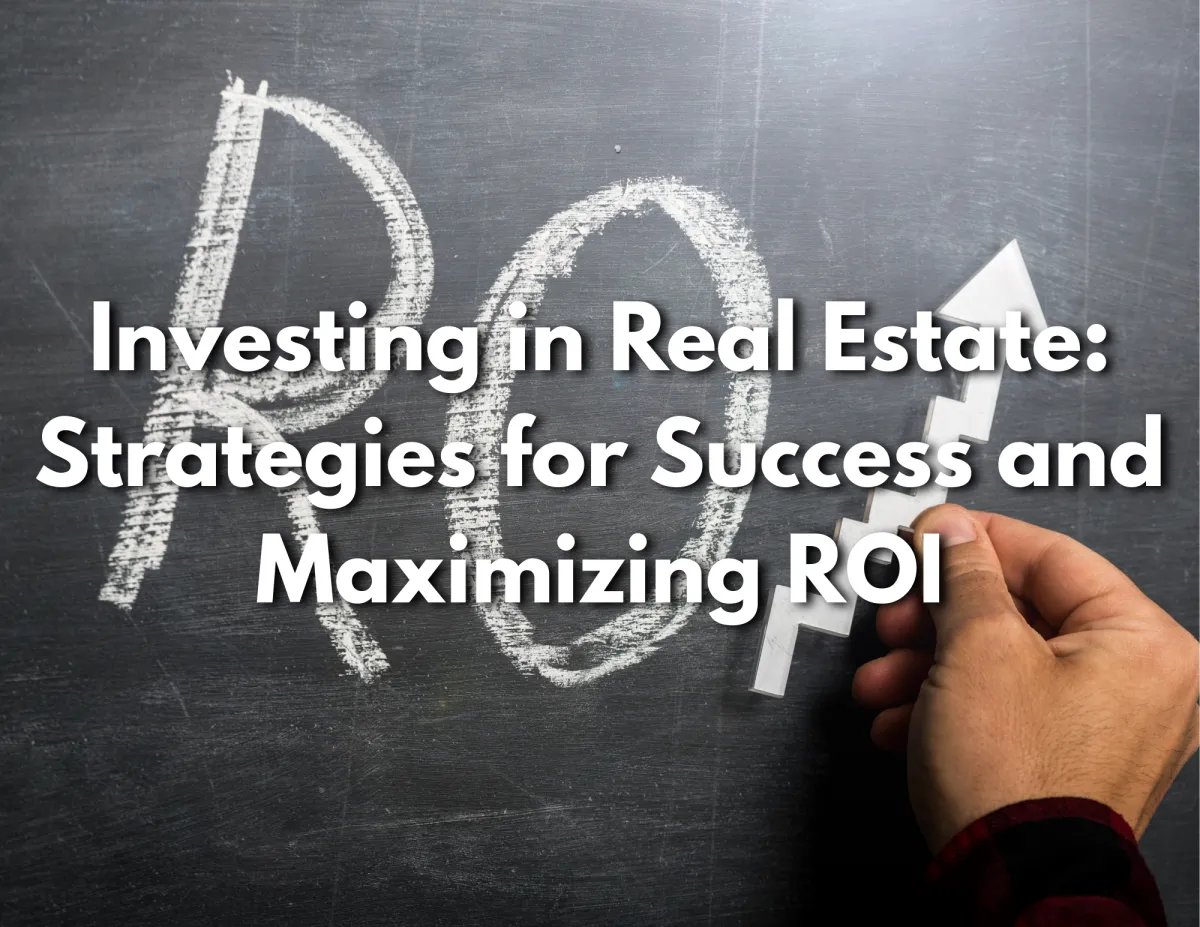How Much Is Your Home Worth?

Investing in Real Estate: Strategies for Success and Maximizing ROI
Real estate has long been considered a reliable and profitable investment strategy. Whether you’re a seasoned investor or new to the world of property investment, understanding the best strategies for success, how to calculate return on investment (ROI), and long-term planning is essential to maximizing your profits.
In this post, we’ll break down key strategies for successful real estate investment and guide you on how to ensure your investment continues to grow over time.
Why Real Estate is a Great Investment
Real estate has several advantages that make it a great long-term investment. It’s a tangible asset that can appreciate in value over time, provide rental income, and offer tax benefits. Furthermore, compared to stocks and bonds, real estate tends to be less volatile, making it an attractive option for investors seeking stability.
However, it’s not without its challenges. Investing in real estate requires careful planning, research, and a deep understanding of market trends and financial considerations. Let’s dive into how you can approach your real estate investments to build long-term wealth.
Real Estate Investment Strategies
There are several ways to invest in real estate, each with its own set of strategies. The most common include:
1. Buy and Hold
The Buy and Hold strategy is one of the most popular for long-term investors. It involves purchasing a property and holding onto it for an extended period to take advantage of appreciation in property value and rental income. This strategy is ideal for those looking to build a passive income stream and gain equity over time.
How it works: You buy a property, hold it for several years, and rent it out. Over time, the property's value increases, and you accumulate equity. Additionally, rental income covers property expenses and mortgage payments.
Ideal for: Long-term investors looking for passive income and property appreciation.
2. Fix and Flip
If you prefer a more hands-on approach, the Fix and Flip strategy might be the right fit. This involves purchasing distressed properties, making necessary repairs or renovations, and selling them at a higher price for a quick profit.
How it works: You buy a property at a lower price due to its condition, fix it up, and sell it for a higher value once it’s renovated.
Ideal for: Investors with renovation skills or a network of contractors who want to capitalize on short-term profits.
3. Real Estate Investment Trusts (REITs)
For those who want to invest in real estate without directly owning property, REITs are a great option. These companies own, operate, or finance real estate and offer shares to investors, much like stocks. REITs are perfect for individuals who want exposure to real estate without the hassle of property management.
How it works: You buy shares of a REIT, and as the company profits from managing real estate, you receive dividends.
Ideal for: Investors looking for diversification and passive income without direct property ownership.
Calculating ROI in Real Estate
Understanding how to calculate your Return on Investment (ROI) is crucial when evaluating any real estate investment. The ROI helps you measure the profitability of a property and determine whether it’s a good investment.
Here’s a simple formula to calculate ROI:
ROI = (Net Profit / Total Investment) x 100
Net profit is the income you generate from your property (such as rent) minus your expenses (mortgage, maintenance, insurance, taxes, etc.). Your total investment includes the purchase price, closing costs, and any other fees associated with acquiring the property.
It’s essential to keep in mind that ROI isn’t just about immediate profits. You also want to factor in long-term property appreciation and rental income growth when determining the value of your investment.
Long-Term Planning for Real Estate Investment
Real estate investments require careful long-term planning. The goal is to build wealth over time, so it’s important to stay focused on strategies that maximize growth and protect your assets. Here are a few tips for successful long-term planning:
1. Diversify Your Portfolio
Diversification is key to reducing risk. Instead of investing in just one property, consider spreading your investments across different types of real estate, such as residential, commercial, and industrial properties. This helps mitigate the risk of a downturn in any one sector.
2. Monitor Market Trends
Real estate markets fluctuate over time, so staying informed on local market conditions and national economic trends is essential. Pay attention to interest rates, neighborhood development, and housing demand to make informed decisions.
3. Consider Property Management
Managing rental properties can be time-consuming. If you prefer to invest in multiple properties, consider hiring a property management company. These companies handle day-to-day operations, including tenant management, maintenance, and rent collection, freeing up your time while maintaining the value of your investments.
Maximizing Your Investment for Future Growth
Successful real estate investors know that maximizing ROI and wealth takes time and strategic planning. By selecting the right investment strategy, calculating your ROI accurately, and maintaining a long-term view, you can build a portfolio that generates steady income and appreciates over time.
Remember, real estate investment isn’t a “get rich quick” scheme, but with patience and smart decision-making, it can be one of the most rewarding ways to build wealth.
Disclaimer: While we provide insights into real estate investing, we are not financial advisors. We strongly recommend speaking with a qualified financial advisor or another professional before making any investment decisions to ensure you're making the right choice based on your individual goals and circumstances.





